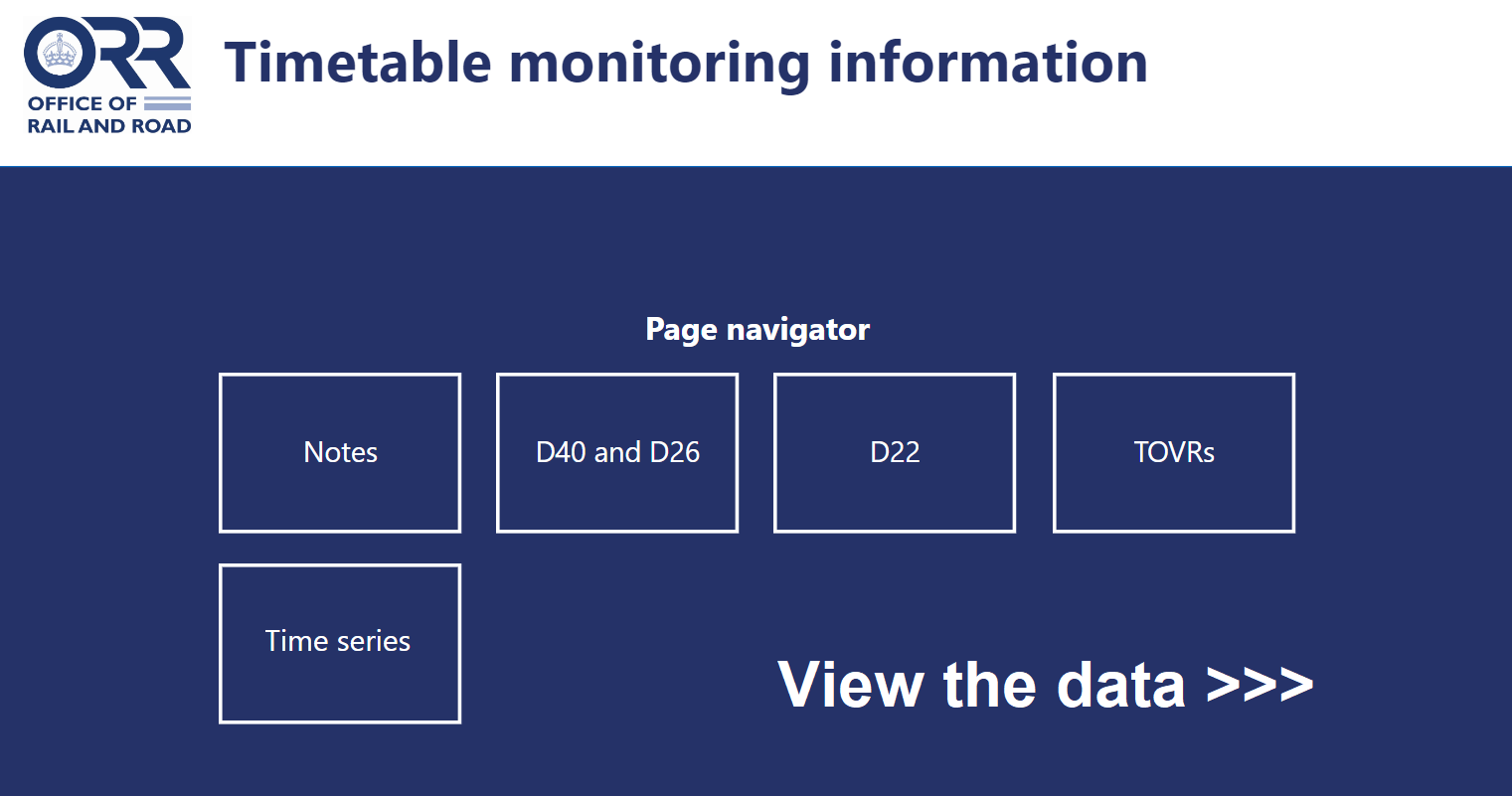ORR is responsible for holding Network Rail to account against the conditions in its licence, which includes the requirement to produce the timetable.
ORR monitors industry compliance with timetable production timescales by gathering data from Network Rail and train operators on key milestones in the Network Code.
Meeting timetable production milestones allows robust timetables to be produced on time, providing certainty to passengers and freight. Monitoring any significant changes in train operator variation requests indicates the stability of the timetable as it approaches publication.
Changes close to or later than 12 weeks prior to the timetable coming into operation are of particular interest because operators have a commitment to open advance booking for passengers at the 12 week point.
For details of how the rail industry produces timetables, please see our report on the timetable development process.
Rail industry compliance with timetable production milestones
This report uses management information data on Network Rail and operators' compliance with timetable production outputs. The data is monitored and analysed during the industry process of producing a timetable for passenger and freight operators.
Key messages, data tables and charts will be made available here after the main two timetable changes in May and December each year.
If you have any questions or feedback, please contact stationsanddepots@orr.gov.uk
View the dashboard, hosted in Power BI:

Latest findings
Our report published on 24 September 2025 found:
- All operators submitted their proposed new timetables (“bids”) to Network Rail in line with the contractual milestones in the Network Code for May 2025.
- One operator (Devon and Cornwall Railways) submitted their bid for the December 2025 Timetable three days late.
- One operator (Direct Rail Services) submitted their bid to Network Rail two days late for the May 2026 Timetable.
- Network Rail provided operators with the draft timetables for May 2025 and December 2025 in line with the contractual Network Code milestones.
- A total of 696 Train Operator Variation Requests (TOVRs) were made in the 26 weeks before the May 2025 timetable came into operation, which is a significant decrease from the 1,572 made for December 2024.
- We (and industry) expect freight operators to have a high number of TOVRS because of their business model which relies on identifying and bidding for unused capacity in the base timetable. However, both the total number of TOVRs submitted to Network Rail for May 2025 as well as the type of operator submitting them has changed since December 2024.
- For May 2025, 421 of TOVRs were made with less than 12 weeks to the timetable change. This accounts for 60% of the total.
- 48% of TOVRs for May 2025 were requested by freight operators. This shows a significant decreased from the previous Timetable change. For December 2024, 1,272 TOVRs were requested by freight operators accounting for 81% of the total of all TOVR requests.
- 50% of all TOVRs for May 2025 came from Passenger operators. This is a large increase from December 2024, where Passenger Operator TOVRs accounted for 17% of the total.
- Of the passenger operators, TransPennine Express and ScotRail continued to have the highest number of TOVRs for the May 2025 timetable change. These two operators also had more TOVRs than other passenger operators for the December and June 2024 timetable changes.
- Passenger operators continue to make a most of their TOVRs in the last 12 weeks before the timetable change:
- For December 2024, 274 passenger operator TOVRs were made (17% of the total)
- For May 2025, 61% of TOVRs made by passenger operators were made less than 12 weeks before the timetable change.

